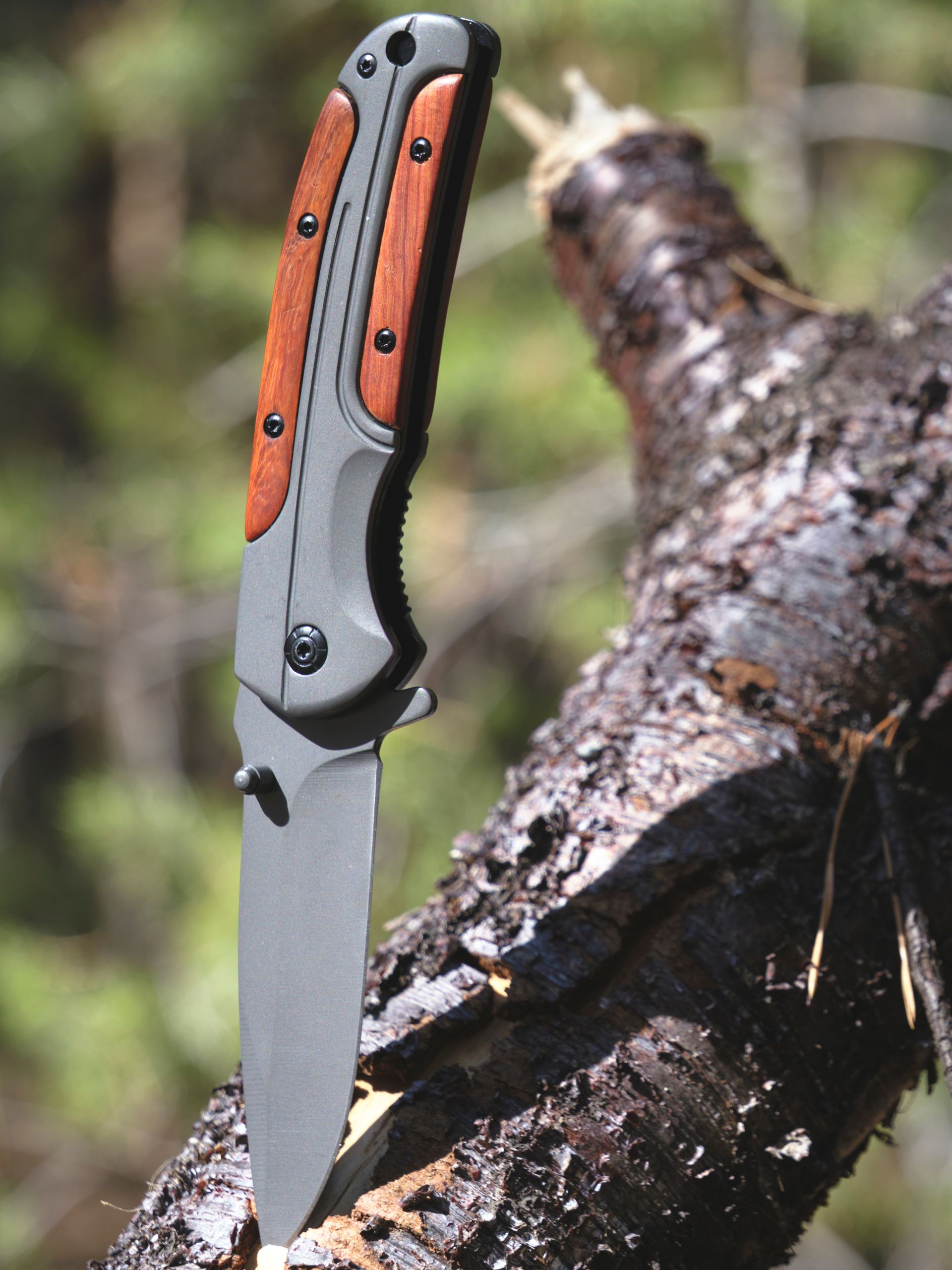Are you considering adding a pocket knife to your everyday carry gear? Pocket knives are essential equipment for many outdoorsy people. If you’ve never owned a pocket knife, this guide is full of things you should know before buying one.
Why Do You Need a Pocket Knife?
Before searching for the perfect pocket knife, consider what you aim to achieve with it. Some common uses for pocket knives include the following:
- Everyday use like opening boxes, cutting string, or slicing an apple
- Cutting fishing lines or gutting fish
- Hunting assistance and skinning game
- Survival situations where a lightweight and versatile tool may be all you have
- Self-defense
Keeping these functions in mind will help you evaluate your options when choosing a pocket knife.
Material: Quality Does Matter
Some important things to consider before buying your first pocket knife are its materials. Focus on the blade and handle materials when shopping.
The blade material dictates the knife’s strength, durability, and sharpness. Stainless steel and carbon steel are the most common blade materials. Stainless steel provides excellent rust resistance, while carbon steel holds a sharp edge for a long time.
The handle material is just as crucial since it provides a grip when using the knife. Some common materials include wood, bone, aluminum, and G10 (a fiberglass composite). Determine which one suits your requirements before deciding.
Locking Mechanism: Ensuring Safety
When looking at pocket knives, don’t forget to consider their locking mechanism. A reliable locking mechanism is critical for a pocket knife because it ensures your safety during use. The most common locking mechanisms include liner locks, frame locks, and back locks. Research the differences between these mechanisms, and choose one that aligns with your safety preferences.
Size: Usability and Legal Considerations
The size of your pocket knife plays a vital role in determining its practicality and adherence to local weapon laws. Big knives have large blades and handles, making them ideal for heavy-duty tasks. However, they might not be legal to carry in your state. Small knives with blades under three inches are almost always legal. They are also portable and easy to access. Before purchasing a pocket knife, learn how to measure a knife handle to fit your hand. That way, you can use something that feels comfortable.
Brand Name: Reputation and Warranty
Consider the reputation of the brand you’re buying from and if they offer a warranty. Reputable manufacturers use high-quality materials and produce durable pocket knives. Even if the quality is there, a solid warranty can give you extra peace of mind, especially if unforeseen issues arise with your pocket knife after purchasing.
Casey Cartwright
Latest posts by Casey Cartwright (see all)
- 5 Safe Places To Park Your Car for an Overnight Hunting Trip – May 8, 2025
- 6 Essential Accessories Every Rooftop Camper Needs – May 7, 2025
- What Gives a Firearm Its Signature Sound? – May 6, 2025

Leave a Reply